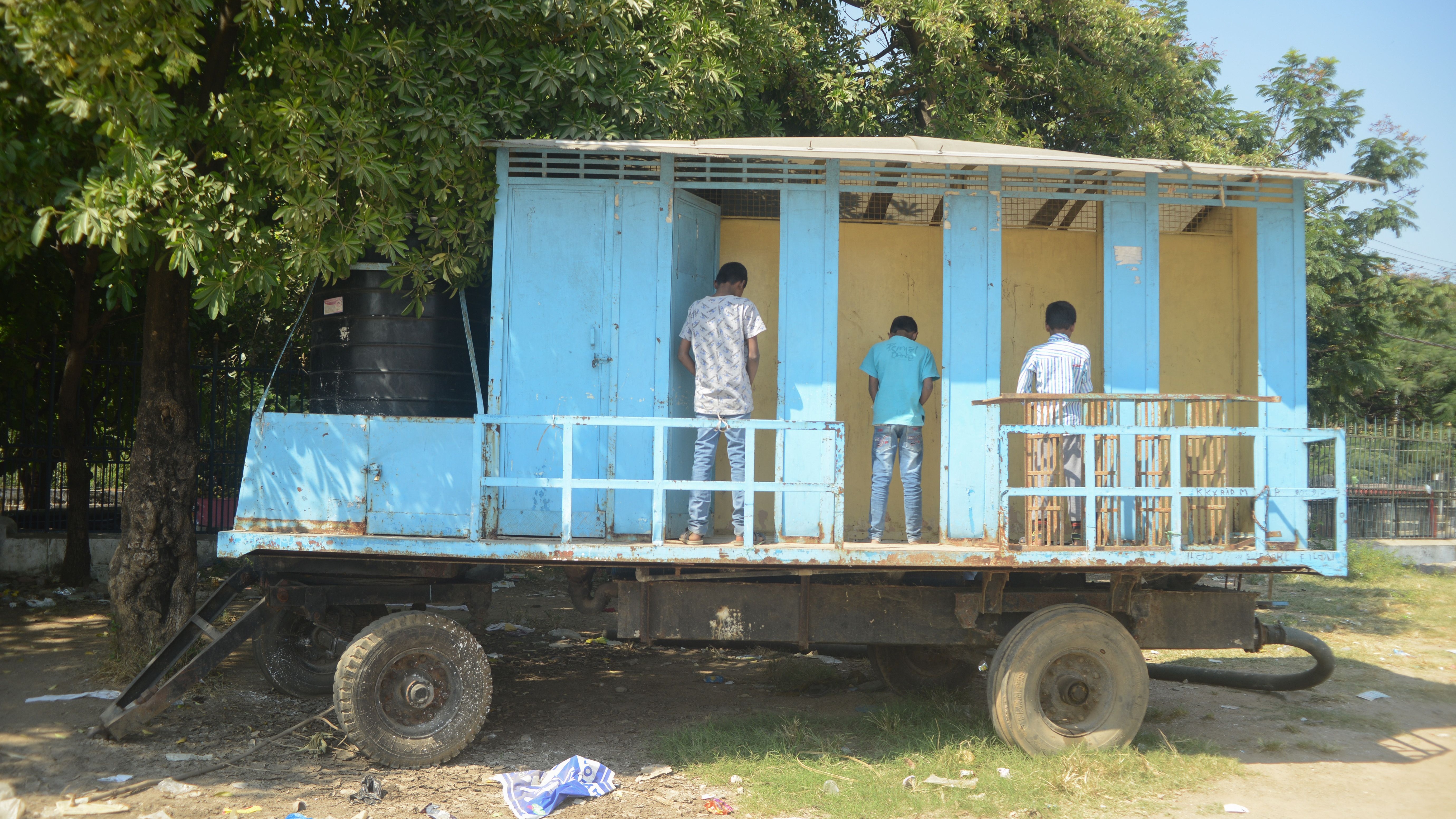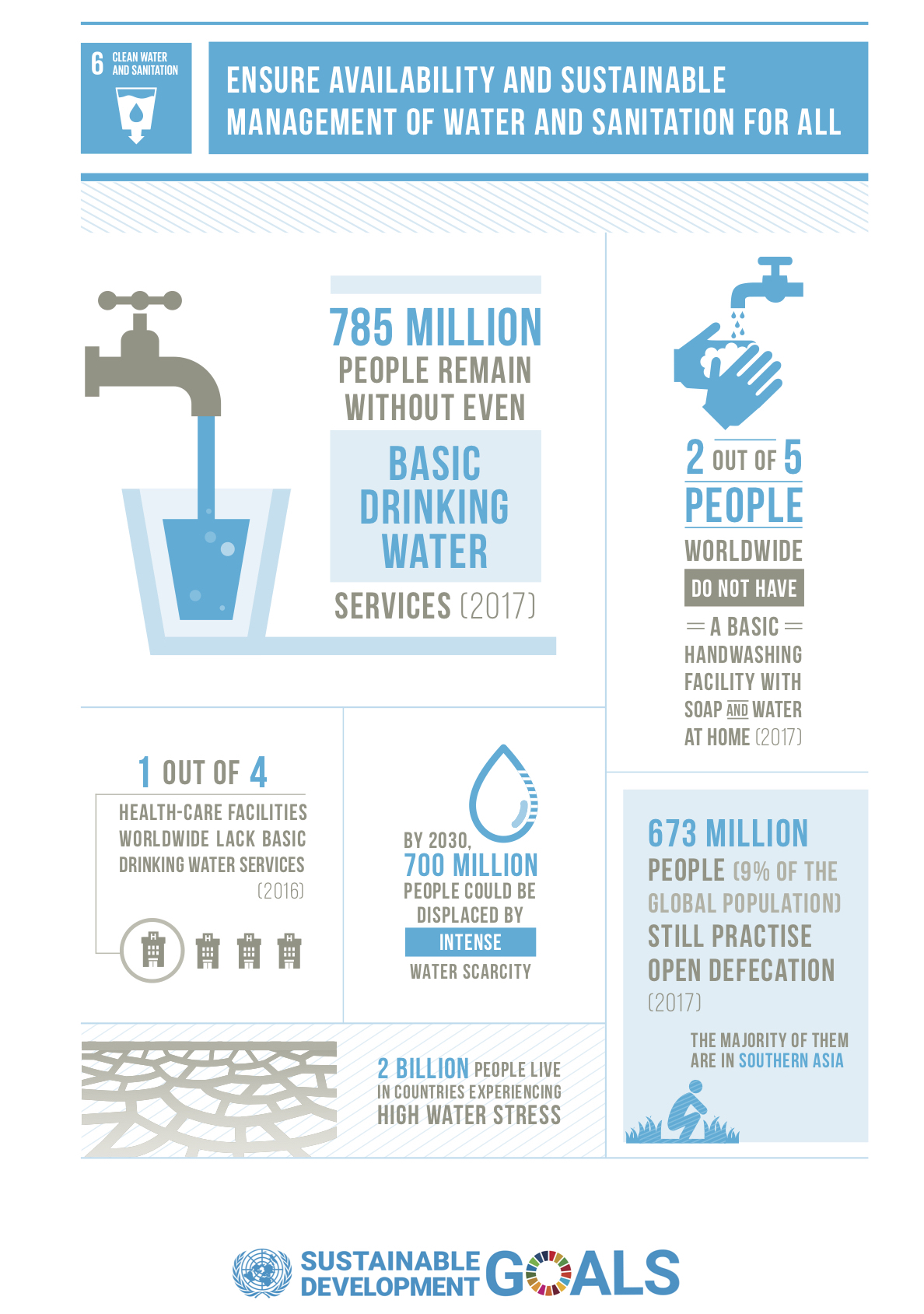Why everyone’s talking about toilets
On World Toilet Day 2019 there are 4.2bn people without safe sanitation

A free daily email with the biggest news stories of the day – and the best features from TheWeek.com
You are now subscribed
Your newsletter sign-up was successful
Access to toilets is something that people in wealthy countries take for granted, but there are billions of people in the world living without safely managed sanitation.
While countries like India are among the worst affected – in 2014, it led the world in “open defecation” – plenty of places in Europe lack access to basic facilities.
World Toilet Day, marked each year on 19 November, is a reminder that a “toilet is not just a toilet… It’s a life-saver, dignity-protector and opportunity-maker,” says the UN site dedicated to the day.–––––––––––––––––––––––––––––––For a round-up of the most important stories from around the world - and a concise, refreshing and balanced take on the week’s news agenda - try The Week magazine. Start your trial subscription today –––––––––––––––––––––––––––––––
The Week
Escape your echo chamber. Get the facts behind the news, plus analysis from multiple perspectives.

Sign up for The Week's Free Newsletters
From our morning news briefing to a weekly Good News Newsletter, get the best of The Week delivered directly to your inbox.
From our morning news briefing to a weekly Good News Newsletter, get the best of The Week delivered directly to your inbox.
What is World Toilet Day?
World Toilet Day was made an official UN day in 2013 in an effort to inspire action to tackle the global sanitation crisis. It aims to help achieve the UN’s Sustainable Development Goal (SDG) 6, which promises safely managed sanitation for all by 2030.

Why is it necessary?
There are 4.2 billion people in the world living without safe sanitation, leading many to practise “open defecation”.
A free daily email with the biggest news stories of the day – and the best features from TheWeek.com
There are an estimated 673 million people who “still defecate in the open, for example in street gutters, behind bushes or into open bodies of water”, according to the World Health Organization (WHO).
Open defecation is dangerous. “One gram of faeces contains 10m viruses, 1m bacteria and 1,000 parasitic cysts,” says The Economist. “Where open defecation is practised, more children die – according to one estimate, it kills 1.5m children under five every year.”
Inadequate sanitation is thought to result in around 432,000 diarrheal deaths every year, causing diseases like intestinal worms, trachoma and schistosomiasis, UN figures say.
In Europe, more than 31 million people lack access to basic sanitation services, and 314,000 people still practise open defecation, according to WHO figures.
Every day, 14 people in the pan-European region die of diarrhoea because of inadequate water, sanitation and hygiene.
World Toilet Day helps people to “recognise that a toilet is not just a toilet”, says Dr Piroska Ostlin, WHO’s regional director for Europe. “It protects your dignity, your health, and the health of those around you.”
What’s being done?
World Toilet Day this year marks the start of the fifth session of the Meeting of the Parties to the Protocol on Water and Health, an intergovernmental meeting supported by the UN Economic Commission for Europe (UNECE) and WHO.
This session will take place in Belgrade, Serbia from 19 to 21 November, and is “a pioneer instrument to support countries’ concrete efforts to realise the basic human rights to safe drinking water and the provision of sanitation for everyone”, says Olga Algayerova, UNECE executive secretary.
But progress towards realising the UN’S SDG 6, of bringing sanitation to all by 2030, is not moving fast enough. The UN says that “achieving universal access to even basic sanitation service by 2030 would require doubling the current annual rate of progress”, and most countries are unlikely to reach full implementation.

-
 The environmental cost of GLP-1s
The environmental cost of GLP-1sThe explainer Producing the drugs is a dirty process
-
 Greenland’s capital becomes ground zero for the country’s diplomatic straits
Greenland’s capital becomes ground zero for the country’s diplomatic straitsIN THE SPOTLIGHT A flurry of new consular activity in Nuuk shows how important Greenland has become to Europeans’ anxiety about American imperialism
-
 ‘This is something that happens all too often’
‘This is something that happens all too often’Instant Opinion Opinion, comment and editorials of the day
-
 How corrupt is the UK?
How corrupt is the UK?The Explainer Decline in standards ‘risks becoming a defining feature of our political culture’ as Britain falls to lowest ever score on global index
-
 The high street: Britain’s next political battleground?
The high street: Britain’s next political battleground?In the Spotlight Mass closure of shops and influx of organised crime are fuelling voter anger, and offer an opening for Reform UK
-
 Is a Reform-Tory pact becoming more likely?
Is a Reform-Tory pact becoming more likely?Today’s Big Question Nigel Farage’s party is ahead in the polls but still falls well short of a Commons majority, while Conservatives are still losing MPs to Reform
-
 Taking the low road: why the SNP is still standing strong
Taking the low road: why the SNP is still standing strongTalking Point Party is on track for a fifth consecutive victory in May’s Holyrood election, despite controversies and plummeting support
-
 What difference will the 'historic' UK-Germany treaty make?
What difference will the 'historic' UK-Germany treaty make?Today's Big Question Europe's two biggest economies sign first treaty since WWII, underscoring 'triangle alliance' with France amid growing Russian threat and US distance
-
 Is the G7 still relevant?
Is the G7 still relevant?Talking Point Donald Trump's early departure cast a shadow over this week's meeting of the world's major democracies
-
 Angela Rayner: Labour's next leader?
Angela Rayner: Labour's next leader?Today's Big Question A leaked memo has sparked speculation that the deputy PM is positioning herself as the left-of-centre alternative to Keir Starmer
-
 Is Starmer's plan to send migrants overseas Rwanda 2.0?
Is Starmer's plan to send migrants overseas Rwanda 2.0?Today's Big Question Failed asylum seekers could be removed to Balkan nations under new government plans